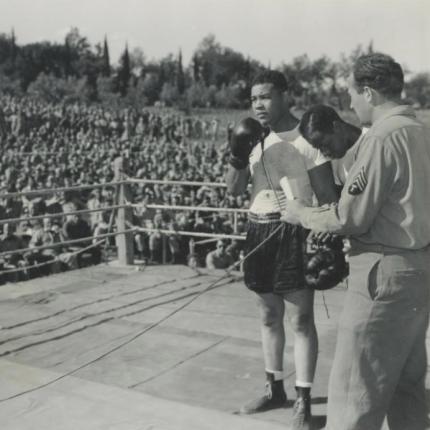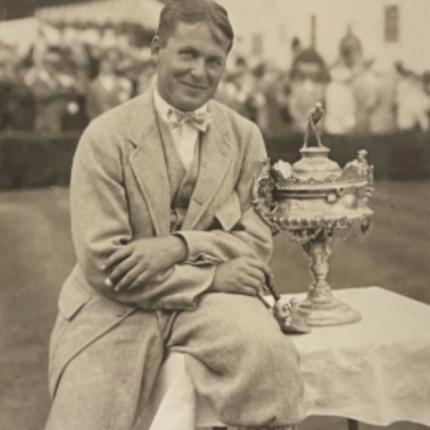A new book by sports historian Johnny Smith deconstructs what he sees as one of the most ubiquitous myths around Michael Jordan: that the basketball superstar transcended race.
Today, many Black athletes are outspoken in movements such as Black Lives Matter or kneeling during the national anthem. In contrast, Jordan spoke about being colorblind and famously quipped, "Republicans buy sneakers, too." Jordan didn't see himself as an advocate for or representative of Black America during his career, and he was criticized for that, said Smith, the Julius C. "Bud" Shaw Professor of Sports History in the School of History and Sociology.
"But in the long run, Jordan was able to leverage his relationships with corporate America to become a billionaire and the first Black majority owner of an NBA team," Smith added. "I would argue that had he been an outspoken civil rights figure in the 1980s and 1990s, a much more conservative time than we are living in now, he would not have had the same access to becoming a spokesman, and he wouldn't have been able to build the incredible wealth that allowed him to become a pioneer as a team owner and part of the sports ruling class."
Jordan was a trailblazer in the endorsement world, negotiating a much bigger deal with Nike than Black athletes had in the past and landing high-profile projects with companies such as Coca-Cola, McDonalds, and more. Now, Jordan uses the wealth and influence he built from these deals to contribute to Black causes and the fight against racism.
"He just does it in a more subtle way," Smith said.
Smith — whose previous book on Muhammad Ali led to a Netflix documentary — uses the lens of sports to study U.S. history and culture, including race, gender, and politics. In Jumpman: The Making and Meaning of Michael Jordan, he untangles the largely unexplored narratives surrounding race and the rise and legacy of one of the most famous athletes of the late 20th century.
The Spirit of the Times
"When sports writers wrote about Jordan during his playing career, they described him as an American hero rather than a Black American hero," Smith said. "I talk about how he came to be seen as a hero in America and what he represented to different people, including how race formed the way Jordan saw himself and shaped the expectations of him as a public figure."
Because Jordan had a substantial following among white fans, it seemed he was the first Black athlete in America to achieve universal admiration, Smith said. However, that admiration came at a cost.
"Jordan made deliberate decisions about what he would say, how he would present himself, and how he would remain silent around issues related to racism, social justice, and inequality so he could maintain his universal popularity in America," Smith said.
Was Jordan obligated to speak out when he was in the spotlight? Some labeled the star as a selfish person both on and off the court.
As a player, Jordan was famously competitive. Smith argues that the drive that took Jordan to great heights was rooted in his childhood, where he confronted racism in his high school in Wilmington, North Carolina. In interviews, Jordan described the racist taunts he endured from his classmates at Laney High School. To Smith, basketball and baseball were Jordan's way to combat them. On the court or at home plate, "nobody would ever deem him less than or inferior," Smith said. "He would be the best."
Off the court, however, Smith contends that Jordan's silence on political topics was less self-centered and more so in the spirit of the times.
"President Barack Obama talks about the fact that he and Jordan belong to the same generation, and for them, they focused on breakthroughs — 'What can I do as an individual to break through a wall that hasn't been broken before?' That was Jordan's focus, so he thought much more individually than collectively," Smith said. "He did not want to represent Black America, but he also couldn't evade the fact that historically Black athletes have carried this larger burden as racial symbols, which complicated it for him."
Independence and the Power of the Individual
In Jumpman, Smith examines Jordan's business and political decisions leading up to his first championship win, what influenced them, and how they influenced others. To some, Jordan represented racial progress. To others, he skirted his responsibility to the Black athletes who came before him. To Jordan, he was just being himself, Smith said.
"Jordan craved independence on and off the court. He didn't want to conform to any expectation of who he should be as a player, a teammate, a role model, or a voice for Black America," Smith said. "He believed in the power of the individual and doing things his own way."




